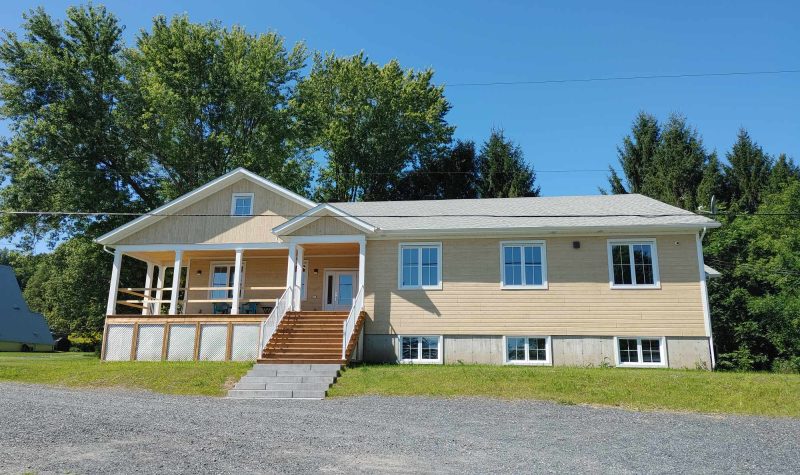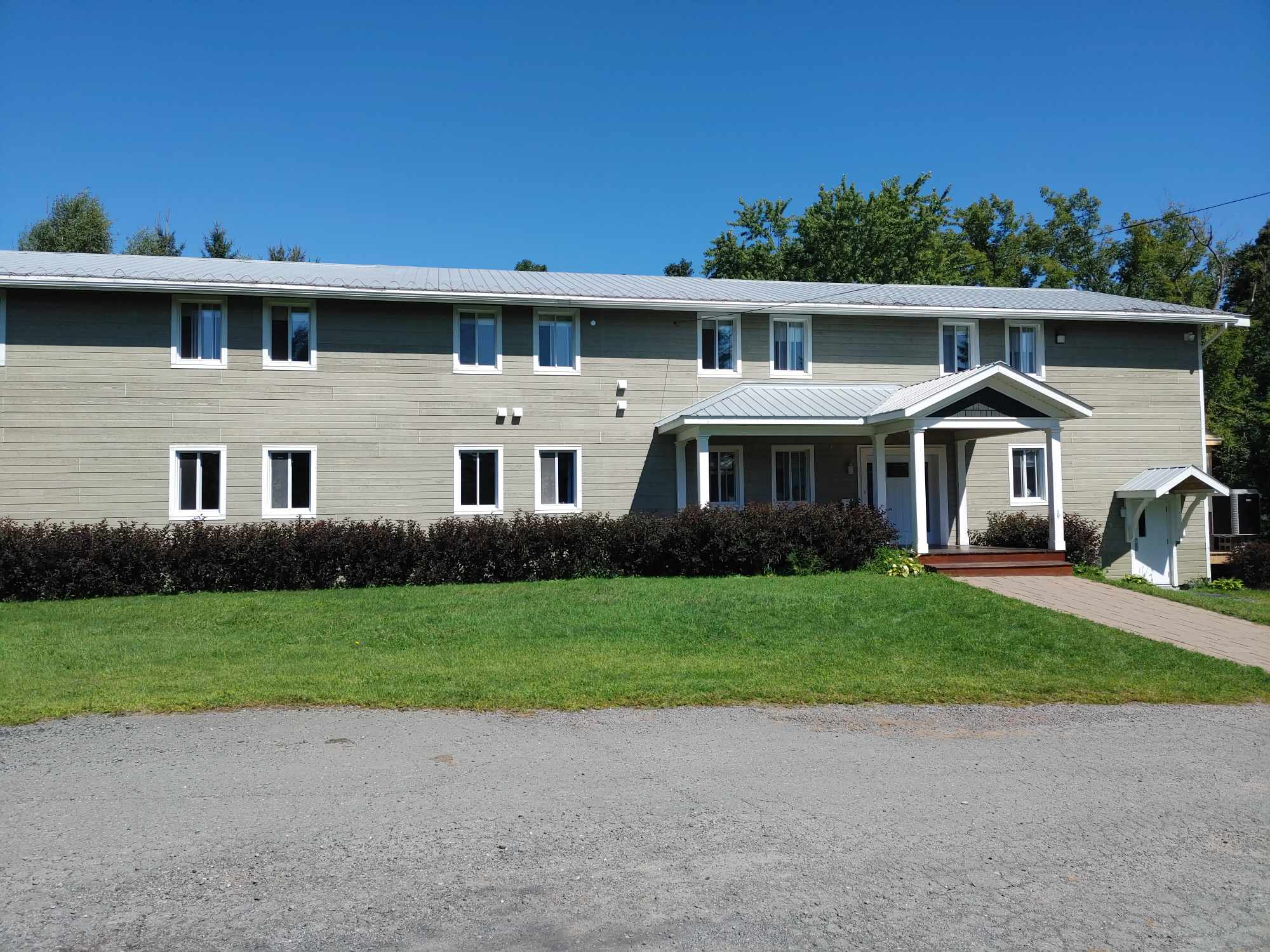Dunham House has expanded its facilities to help meet the demand for its services and to ensure a financially viable future in order to continue providing quality care to English-speaking Quebecers. The expansion project comes at a time when concerns continue to grow around the access to health and social services in English in the province.
The residential treatment centre for individuals suffering from mental health and concurrent disorders, like addiction, originally served a maximum of 28 clientele, but a newly constructed building will now allow Dunham House to serve a maximum capacity of 40 clientele, according to Clinical Supervisor Anthony Berger.
“We could only have up to 28 people at one time and that obviously did not meet the demand of the phone calls that we were getting, the type of problems that people were calling in with, looking for services for their loved ones,” he said. “So expansion was always on the brink of our conversations. How can we get to a point where we are not having too long of a waitlist? What does that look like?”
While clients at Dunham House typically have their treatment subsidized by the government if they take part in its 6-month core treatment program, this new building will be reserved for more privatized care to help fill in the financial gaps created by the lack of government funding being provided, added Berger.
“The government funding wasn’t enough for our type of services. So we were looking to expand into a ‘hybrid model.’ Also, some of our population doesn’t quality for government funding and they are still looking for help,” he explained. “It was an ability for us to have a certain “pay-per-service” type of fee and expand our services a little bit more. (…) Costs keep going up for a lot of our services so we want to make sure we’re continuing to provide the best quality care and affordable care for those that are looking for services for substance use and mental health.”
These services include a number of therapeutic activities, such as art therapy, music therapy, and recreational therapy, workshops that touch on a variety of themes, and individual and group counselling.
“We’re constantly looking as to how we can improve those therapeutic activities and how to reach people in a different ways that are not just talk-based,” noted Berger.
The newly constructed building provides six additional bedrooms that are larger, more modern, and have their own private bathrooms.
“We started from scratch. (….) We have a big lounge so that the residents can read a book in quiet and so they have (a place to store food). We have a big gym facility now with new equipment that they can use for physical health and to get back into their every day routine. One of the aspects of recovery is physical health so we wanted to make sure that we have a space for that as well,” highlighted Berger.
The expansion project also provides more office spaces for Dunham House staff to better carry out the quality care they are seeking to provide.
“Office space has been really difficult over the last couple of years with the expansion of our team. The renovation also allowed each of our counsellors and therapists have their own office space. It will allow them to do their work, allow them to know where they’re going to be on any given day, and where the residents can meet their therapist or counsellor,” said Berger.
As one of the only facilities of its kind that operates in English, Berger noted that expanding Dunham House was always at the top of the agenda for the non-profit, especially during a time where services for the English-speaking population seem to be continuously cut. It hopes that its expansion project can continue benefitting English-speakers in the Eastern Townships and throughout the province.
“As we know, not only in the Eastern Townships area but throughout Quebec, English services seem like they are being cut by the day or by the week depending on where you’re at. It was really important that we continue to maintain these services and look at expanding these services down the line to things like detox services, better transitional homes, all of these different projects that we are looking at,” he emphasized. “One of the important pieces was to make sure that the English community has somewhere to go for residential care if they need it. (…) We didn’t want to be an organization that, somewhere down the line, due to funding or the lack there of essentially, would not exist.”
Dunham House will be hosting an open house event in September for those interested in seeing its expansion project. A time and date will be announced in the near future.
Listen to the full interview below to hear more about Dunham House and its expansion project:



